Overcoming the Challenges Non-Cash Assets Present
August 28, 2024

Charitable organizations vary in their ability to accept and manage non-cash gifts.
Non-cash gifts can provide clients with unique and tax-efficient opportunities to support causes they care about. However, they can also present unique challenges. Anticipating and addressing these challenges up front can minimize the risk of unwanted delays in processing your client’s gift and ensure that your client will be able to meet both their philanthropic and tax planning goals.
If your client wants to gift a non-cash asset to a charitable organization, here are five crucial questions to ask that organization before initiating transfer of that asset:
1. “Will you be able to accept and manage this type of gift?”
Charitable organizations vary in their ability to accept and manage non-cash gifts. Some may have capacity to handle a wide range of assets, including publicly traded securities, real estate holdings and tangible personal property (for example, cars, artwork, or collectibles). Others may have more limited capacity or may specialize in managing particular types of assets aligned with their mission.
Before contacting the intended charitable recipient of your client’s gift, you may want to visit the organization’s website to see whether the organization has its gift acceptance policy posted. An organization’s gift acceptance policy will provide you with a basic understanding of the review and acceptance process for different asset types, as well as any asset types the nonprofit will not accept. (You can find MCF’s Gift and Fund Acceptance Policy here.)
2. “Will you need additional information to evaluate this gift before accepting it?”
After confirming that your client’s intended recipient organization accepts the type of asset your client would like to give, you will want to clarify what additional information (if any) that organization will need to evaluate your client’s gift prior to acceptance. The information required generally depends on the complexity of the gift.
Gifts of non-cash assets are typically categorized as either non-complex or complex gifts. Non-complex gifts are assets that are both easy to value and easy to sell, such as publicly traded stock and mutual fund shares. Complex gifts are typically assets that require more active management, are more difficult to value or carry a higher potential risk of liability. These could include life insurance policies where the charitable organization is both the owner and the beneficiary, closely held securities, real estate, and oil, gas, and mineral interests.
Due to their nature, complex gifts generally require more scrutiny than non-complex gifts. For example:
- Before receiving a gift of real estate, an organization will likely want to confirm that the donor has clear title to it, review or request an environmental site assessment for it (if applicable), and arrange for its own appraisal of the property.
- Before receiving a gift of closely held business interests, an organization will likely want to review any documents placing restrictions on those interests (buy-sell agreements, partnership/shareholder agreements, existing options to purchase, etc.).
Once you have clarified what additional information is necessary for evaluation of your client’s proposed gift, you can then assist your client in gathering and submitting that information in a timely manner.
3. “How long does it typically take for you to evaluate and process this type of gift?”
Regardless of complexity, non-cash gifts almost always require more processing time than cash gifts. If it is critical that your client’s non-cash gift be completed by the end of their tax year, contact the charitable recipient to learn how long it typically takes them to evaluate the type of gift your client is making and, once approved, how long it typically takes to complete transfer of the gift. While individual gift processing times do vary, review and acceptance of complex gifts can take 90 days or more to complete.
4. “Will my client be expected to pay any costs associated with your review and acceptance of the gift?”
The review and acceptance process for a complex gift may involve additional expenses, such as preparation of appraisals and legal review to ensure compliance with regulatory requirements and to protect the organization’s interests. Ask the recipient organization whether it will incur additional expenses in performing their due diligence for the gift. If so, confirm whether your client will be responsible for paying those expenses.
5. “Are there any limitations on the type of fund my client can establish with this gift?”
(This is a critical question to ask if your client would like to use their gift to establish a donor advised fund at a community foundation or other donor advised fund sponsor.)
There are some limitations on the types of non-cash assets that can be used to establish a donor advised fund. For example, a nonprofit may not allow gifts of closely held business interests to be placed into a donor advised fund if doing so would subject the nonprofit to excess business holdings tax under Internal Revenue Code section 4943.
If you or your clients have additional questions about making gifts of non-cash assets to MCF, we would be happy to help! Alison Helland, Director of Donor and Advisor Engagement, can assist you or refer you to another member of our Donor Engagement team to serve as a resource for your specific situation. You can reach Alison via email at ahelland@madisongives.org or via phone at 608-446-5937.
Please note that this article has been prepared for informational purposes only and is not intended to provide, and should not be relied on for tax, legal or accounting advice.

